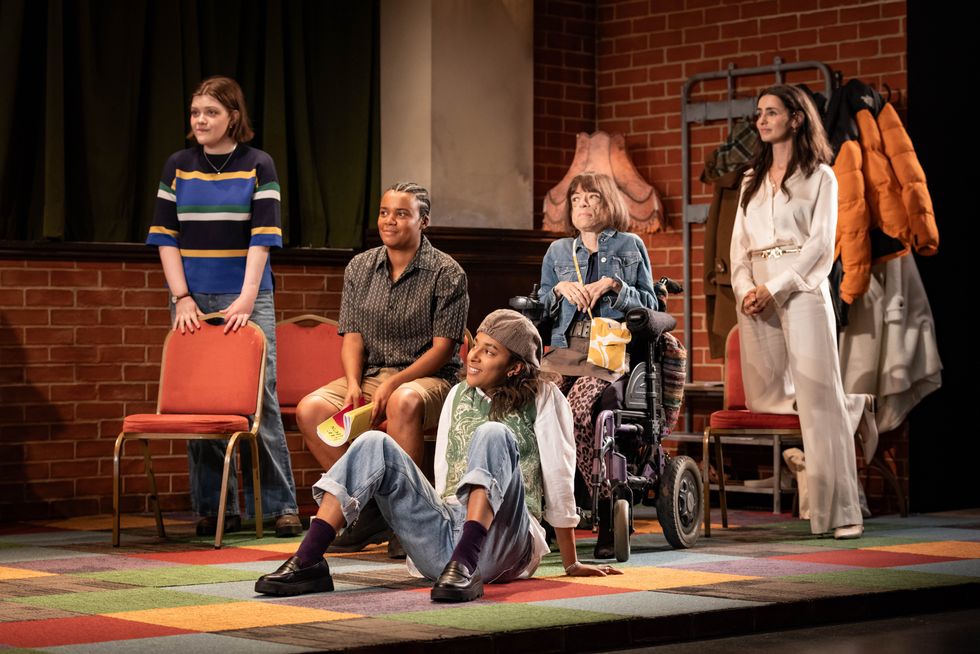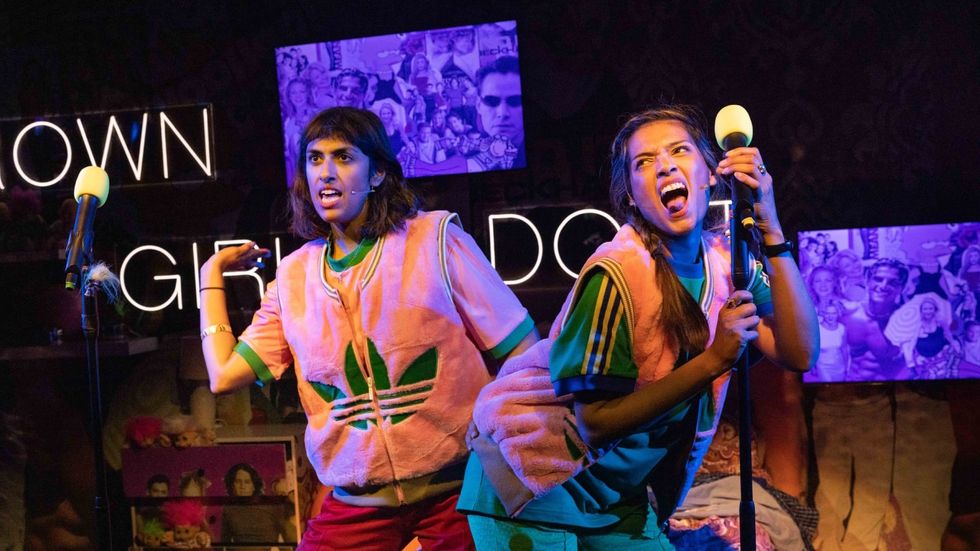ACCLAIMED American Bharatanatyam exponent Mythili Prakash recently took centre stage with the UK premiere of her show at the newly opened Sadler’s Wells East theatre in Stratford, London.
Any new venue drums up a world of excitement and almost feels like going on a first date, and this was no different. The freshness of everything was immediately impactful in this suitably lit venue. New carpet, modern fixtures, a Great Gatsby-inspired ambience, and the smell of unforgettable art in the air. There was also a dash of loving memories thrown in.
The appropriately dimly lit theatre added a flair of excitement as the audience swiftly made their way to their allocated seats. Enter Mythili, in all her glory, as she stepped into an intriguingly designed set filled with metal structures.
She took to the stage with an all-female cast to explore the deep relationship between femininity and purity, delivering an impressive show that explored mythical narratives. Drawing deep inspiration from the mythology of Goddess Durga, this production analysed the relationship between female deities and how society treats women.
From the opening scene, Mythili projected a goddess-like energy with every movement, carefully curated to direct the audience’s gaze exactly where she wanted it. A goddess embodies power and control, which is what the performers exuded with their interpretative dance, telling a tale that sparked passion, emotions of resistance, persistence, and determination. The team of vibrant women decorated the stage, telling a timeless story of a goddess navigating human situations. Or perhaps a human experiencing goddess-like power? With beautiful music, each scene transitioned seamlessly into the next.
The other major highlight was the clearly skilled dancers, who bounced off each other beautifully, with lead star Mythili being the central fulcrum of the performance.
The emotionally charged final scene was the most captivating and empowering of the entire performance. This transformation was visually represented as Mythili evolved from a plainly dressed woman to an elaborately adorned goddess. By humanising the goddess, the timeless piece offered something that resonated deeply with the audience, especially the women present.






 Jamie Lloyd’s Evita with Rachel Zegler set for Broadway after London triumphInstagram/
Jamie Lloyd’s Evita with Rachel Zegler set for Broadway after London triumphInstagram/








 An explosive new play that fuses biting satire, history and heartfelt storytellingPleasance
An explosive new play that fuses biting satire, history and heartfelt storytellingPleasance
 Lunchbox is a powerful one-woman show that tackles themes of identity, race, bullying and belongingInstagram/ lubnakerr
Lunchbox is a powerful one-woman show that tackles themes of identity, race, bullying and belongingInstagram/ lubnakerr She says, ''do not assume you know what is going on in people’s lives behind closed doors''Instagram/ lubnakerr
She says, ''do not assume you know what is going on in people’s lives behind closed doors''Instagram/ lubnakerr
 The crew of The Ministry of Lesbian Affairs
The crew of The Ministry of Lesbian Affairs
 It is rare to witness a show that is both this hilarious and this importantAMG
It is rare to witness a show that is both this hilarious and this importantAMG